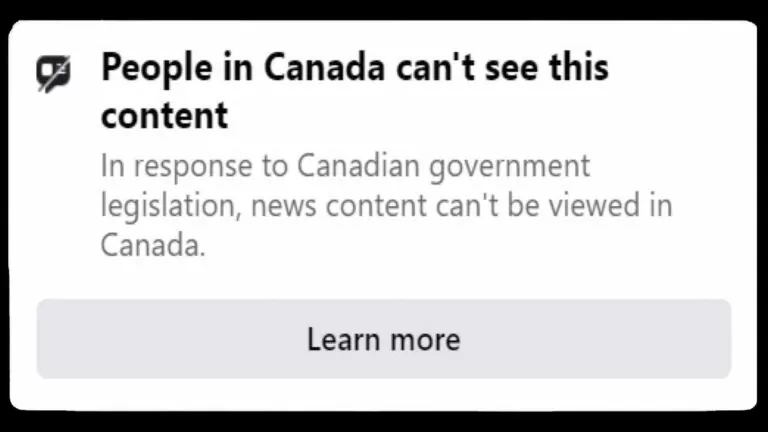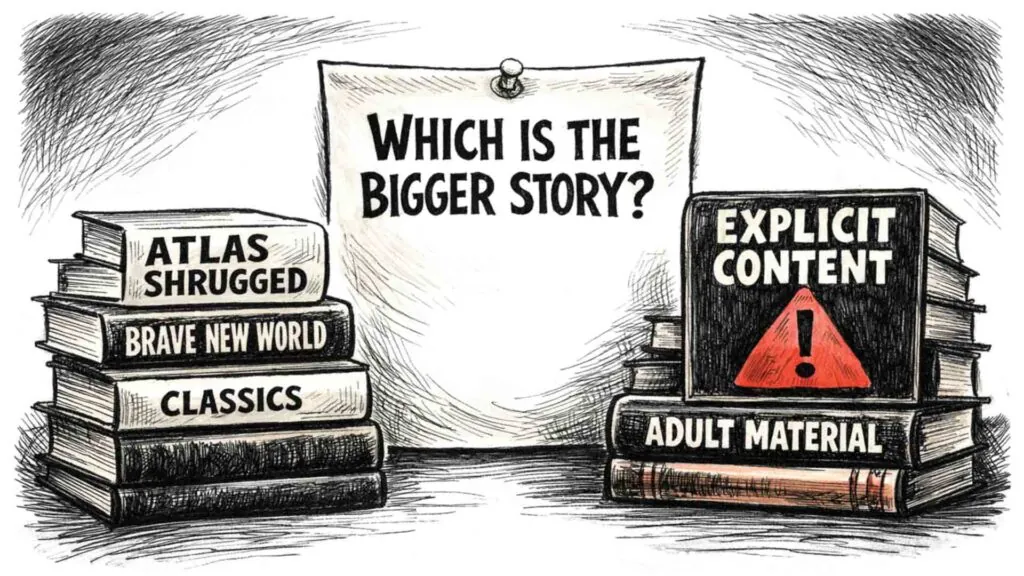It’s been a year now since Meta banned Canadian news from its Facebook and Instagram platforms, in response to Canada’s 2023 “Online News Act.” This Act required large “digital news intermediaries” – only Google and Meta met the criteria – to compensate Canadian news outlets for news articles the social media giants shared on their platforms. Instead of paying up, Meta instead chose to stop sharing these news links.
Now, a year later, a report from the Media Ecosystem Observatory (MEO) highlights how the ban has hurt Canadian media’s online presence. The report estimated that pre-ban, Canadian news outlets’ social media engagement amounted to more than 19 million a day, but post ban that has dropped by 8 million or roughly 43%. It has hit local news particularly hard because many were only on Facebook, and not other platforms.
The results also include almost a third of Canadian news outlets going effectively dark on the social web, no longer posting to it. 770 outlets were posting prior to the ban, and a year later that’s down by 215.
So in some pretty significant ways the Online News Act is hurting, rather than helping, Canadian news outlets.
The premise behind the Act was always flawed. It was built on the presumption that by linking to news articles, these two companies, in some way, owed the news outlets something. Google and Meta were making money off of sharing these news links, as Facebook, YouTube, and Instagram rank one, two, and three among the places Canadians turn to for their news. Being a home to these links brought more traffic, which meant more ad revenue. But Meta and Google were helping their bottom line by also helping these news outlets. Any online creator, big or small, wants their content shared – that’s how we can reach further. No shares means no reads, watches, or listens. That’s why companies will pay Meta and Google to share their posts – so we can reach more people. The idea of penalizing these companies for sharing links to news articles is akin to penalizing them for giving out free promotional ads.
Both Google and Meta threatened to simply stop carrying any Canadian news – if what they were doing was going to be viewed as theft, then they would stop “stealing.” However, shortly before the Act came into force, Google negotiated an agreement with the Canadian government, giving it $100 million a year to be distributed as the government so decides. The Act becomes yet another medium for the Liberal government to direct dollars to the media outlets it wants to support.
Meta held firm – it would not pay – so it chose instead to stop allowing Canadian news shares on its platforms. The government backed them into a corner, and they decided to show just how helpful (and not harmful) they were to Canada’s news outlets… by no longer helping them. A year later, and the point has been well made. Canadians are still turning to Facebook and Instagram for their news, but there isn’t much to find. The Online News Act has effectively prevented many Canadians from being able to access Canadian news coverage.
So, will the government learn its lesson and back down? Or is the Liberal government happy with Canadians being limited in their access to Canadian news? If that first doesn’t happen, it only makes the second seem quite plausible.












